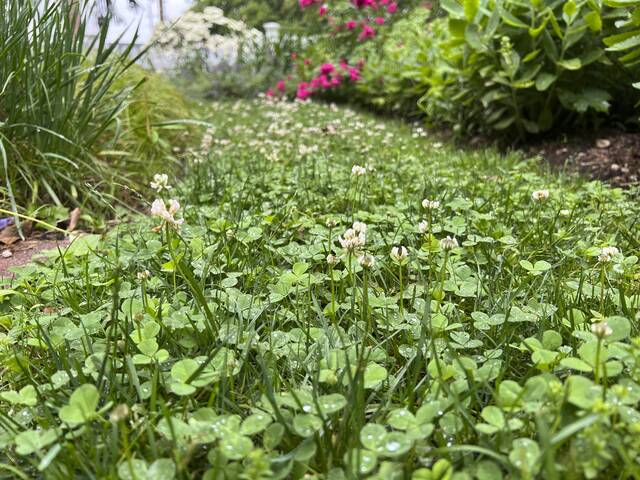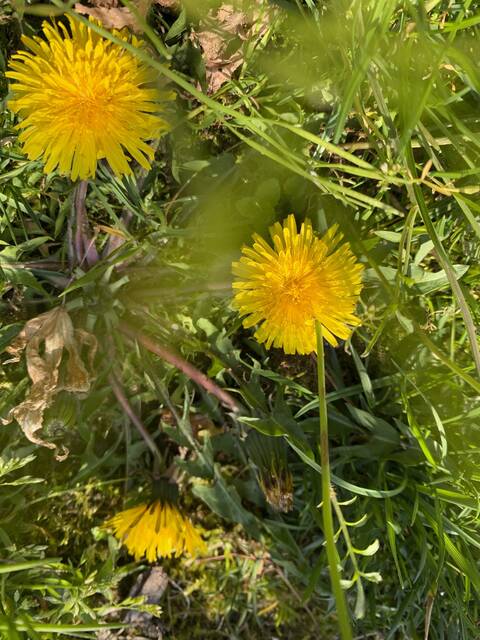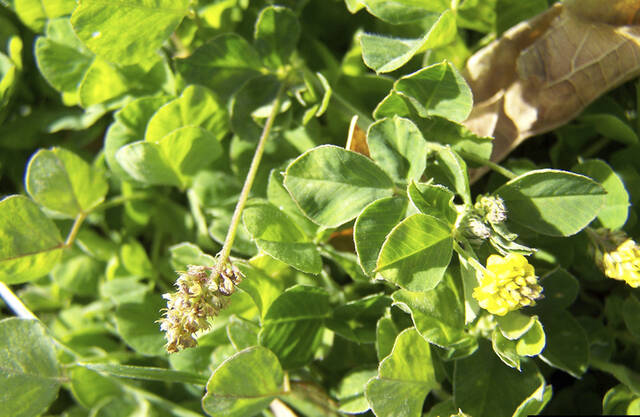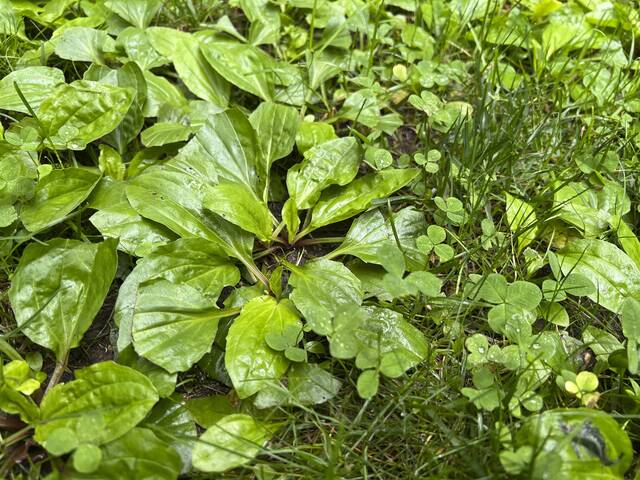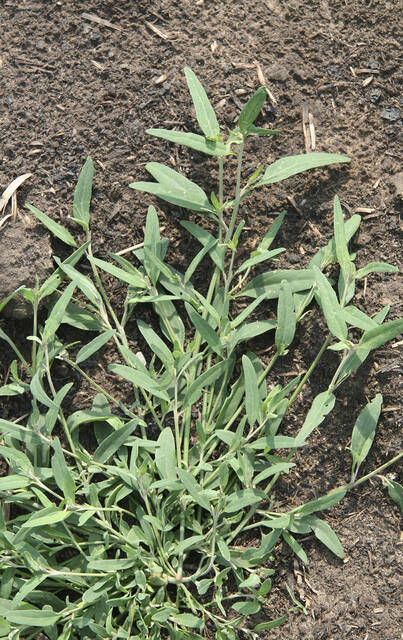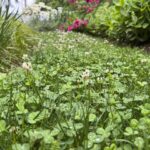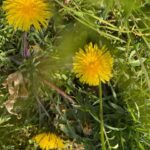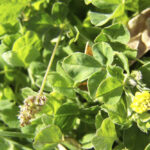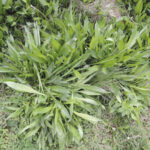Got weeds in your lawn? Me too. And although it’s tempting to reach for a spray bottle, that shouldn’t be our first impulse.
Believe it or not, weeds aren’t just freeloaders crashing our garden party. They’re messengers with important information that requires our attention. We just have to learn to speak their language.
What common lawn weeds tell us
A dandelion popping up in the lawn is there because the soil is infertile and the grass is too thin. Fertilize and sow seeds for a fuller turf, and the opportunists will move on.
Black medic is a demure, clover-like weed with small yellow flowers that’s holding an invisible bullhorn, shouting, “What’s a girl got to do to get some nitrogen over here?” Check your soil’s nutrients and fertilize accordingly.
Both broadleaf and buckhorn plantain won’t grow unless the soil is compacted. Core aerate the lawn in spring and fall to allow water and air to circulate through it freely.
Likewise, prostrate knotweed thrives in high-traffic, compacted areas. If you have kids or a large dog running laps in the yard — or if passersby consistently cut through a portion of your lawn — chances are you have made its acquaintance. Again, core aeration is your best bet. Do it several times a year and incorporate compost to create an inhospitable environment.
Both mouse-ear and common chickweed flourish in shady spots, so cut back nearby tree branches to allow more sun to reach the soil. The lawn will appreciate the extra light, too. Common chickweed also loves cool weather, but that is out of our control.
Clover: One of the good guys
I’m conflicted about telling you how to get rid of clover, because I don’t believe you should. I actually mixed it into my lawn deliberately, and I’m not alone.
In fact, years ago, clover was a standard component of American grass seed mixes — it added a natural source of nitrogen to the soil that reduced or eliminated the need for fertilizer. But when the first weed killers were marketed to homeowners in the 1950s, clover was suddenly villainized. I wonder why.
Clover is a good guy that shows up to help when soil is lacking water or nutrients. But if you really want it gone, water and fertilize the lawn regularly.
And try to accept some imperfections. Nobody needs a flawless lawn — just a healthy one.


